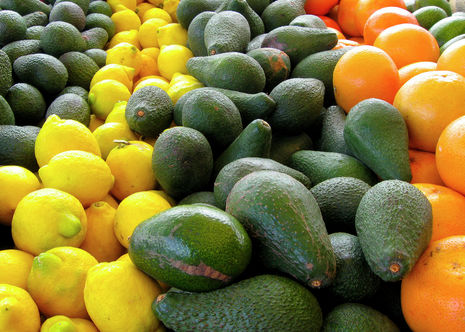Homo Scientificus v. Homo Economicus
Tungsten Tang explores whether it is possible to be a scientifically optimal consumer

Current consumption patterns, especially in the West, have an immense effect on the global supply chain and the levels of exploitation experienced along with it. Ethical consumerism intends to counter this, by both making an activist statement and materially supporting preferable products with minimal exploitation — all based on the assumption of free consumer choice on a level playing field of the market.
In classically liberal, free-market economics, the concept of homo economicus is simple — a perfectly rational and purely selfish person, who aims to maximise their own utility (material well being). Therefore, can the congruent concept of homo scientificus be established, as a person whose behaviour is strictly concerned with scientific optimisation in terms of efficiency, accessibility and sustainability?
Homo scientificus
Homo scientificus goes to a grocery store. They pick up avocados, and quickly put them down. Why? Back-of-envelope, they calculated: two avocados contain 846.36g of embodied CO2, almost twice greater than one kilogram of bananas (480g CO2), although less than 100g of beef (6.3kg CO2). Aside from its locally exploitative economy, industrial avocado production uses 9.5 billion litres of water daily, mostly concentrated in Mexico’s Michoacán state, where regular seismic movements are likely linked to subsoil caverns opened up by avocado-related water extraction.
Homo scientificus goes to a wet market in a foreign country, say the author’s hometown, Hong Kong. There are no labels on any of the processed food denoting certification, origin, or pesticide use. Instead, the wet market trader can only recommend organic produce at 3 times the price, or exotic imports from far away — tins from the UK, green beans from Kenya, plums from Chile. Homo scientificus thinks this is rather ironic, given the high levels of embodied CO2 associated with intercontinental transport.
Homo scientificus then gets in their car and drives to work. They wish they could use public transport, or at least drive a Tesla, but charging stations and bus stops are scarce, especially near their grandparent’s rural Texan ranch — plus, gasoline here is inexpensive, priced at US$2.6 per gallon (50p per litre, where it is around £1.30 in the UK).
Homo scientificus wonders: why is it so difficult to be ethical? Why are scientifically optimal goods and services less economically viable, and often simply not accessible? Why does the market incline towards less ethical options?
The power of individual choice
If consumerism is akin to dollar voting, it is a defective democracy in that the most desired candidates are ones you cannot vote for. As simply put by academic Terry Hathaway, “you cannot purchase clean air, or reductions in CO2, or increased biodiversity.”
It is impossible to put a price tag on these common access resources, hence why they are always undervalued in a free market. Land is most commonly undervalued, even when leased — permanent degradation can be done by temporary tenants of the land, exemplified by Rio Tinto’s operations in Bougainville. As a consumer, this means that by purchasing, or not purchasing certain products, the pressure placed on firms to stop exploitative land activities is rather minimal.
The second defect of ethical consumerism is the ambiguity of who exactly the dollar votes for: “Buying a Fairtrade Nestle KitKat from an Asda works as a support for Fairtrade, support for Nestle, support for the particular product and support for Asda,” Hathaway notes.
What material share do each of these firms receive from the dollar’s worth of vote? Change in consumer preference induces change in tertiary sector restaurants, in the form of gentrification, due to the immediate contact with consumers, much more vigorously than in primary (agricultural) and secondary (food processing) sectors. In contrast, with the increased use of electric vehicles, while the largest share of profits goes to Tesla, or a similar company, the ripple effect into the primary sector is manifested as environmental degradation via lithium mining. It is impossible to vote, with the dollar, for any section of the supply chain in isolation.
Dollar voting negates not only corporations, but also governments, as key actors in all markets. The IMF estimates the world’s governments spent US$ 5.2 trillion in 2017 alone to subsidise the fossil fuel industry. In the US, these subsidies are prescribed in the tax code, causing gasoline to remain luringly cheap for the regular consumer in the US — a subtle but pivotal market force decelerating the phase-out of fossil fuels.
The limits of consumer action
Josée Johnston, in her study of Whole Foods Market (WFM), suggests how consumerism has reconciled the conflicting ideals of the consumer (rooted in individual self-interest) and the citizen (rooted in collective responsibility to the social and ecological commons).
The internal conflicts surrounding ethical consumption are experienced by the consumer-citizen on multiple levels; the immediate ‘feel-good’ experienced post-consumption has inspired the associated notion of cultural capital (i.e., “good taste”), which in itself manifests the broader anti-corporate hate — against tin cans, burgers, sweatshops. Yet, this hate is mistakenly perceived as support for an alternative, substitutive corporation like WFM.
This is where the scientifically-informed citizen steps in and reassesses our demands, not merely as end-consumers, but also to consider how scientific research has been leashed by consumer preference.
An example of this can be found within turbomachinery research, which has traditionally prioritised jet engines. Yet engineers have now reached a bottleneck: thermal efficiency is progressively difficult and expensive to increase as we approach the upper bound of ideal-cycle efficiencies, unless new thermal-resistant materials are adopted to increase operational temperature. The scientist must hence question: is research in marginal efficiency improvements for jet engines worthy, or are we not trying hard enough to envision an engineered future without the hot air?
Science gives us the toolkit to move beyond making the simple choice for less-destructive goods and services, and instead to fundamentally question whether the consumption should occur in the first place. While global capitalism aims to individualise consumer action, a more viable alternative is to demolish the dualism between consumers and producers — we must re-politicise our role in the economy.
 Comment / The (Dys)functions of student politics at Cambridge19 January 2026
Comment / The (Dys)functions of student politics at Cambridge19 January 2026 Arts / Exploring Cambridge’s modernist architecture20 January 2026
Arts / Exploring Cambridge’s modernist architecture20 January 2026 Features / Exploring Cambridge’s past, present, and future18 January 2026
Features / Exploring Cambridge’s past, present, and future18 January 2026 News / Your Party protesters rally against US action in Venezuela19 January 2026
News / Your Party protesters rally against US action in Venezuela19 January 2026 News / Local business in trademark battle with Uni over use of ‘Cambridge’17 January 2026
News / Local business in trademark battle with Uni over use of ‘Cambridge’17 January 2026









